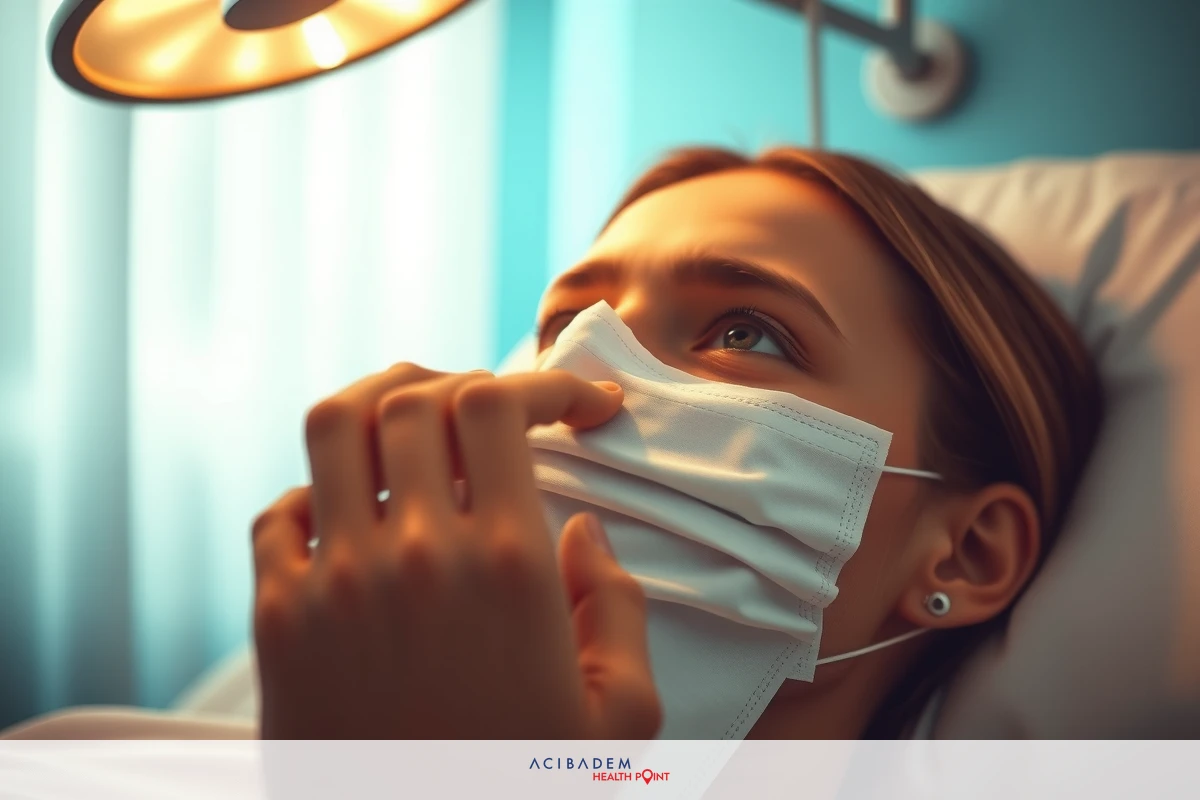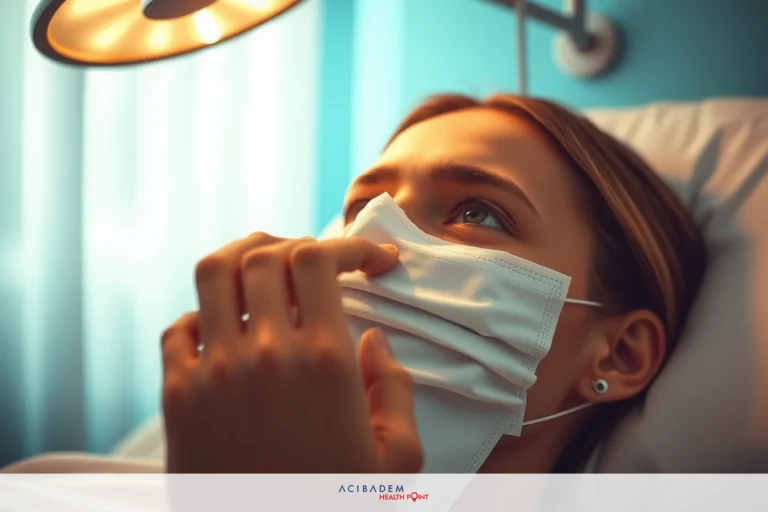Can I Blow My Nose 3 Weeks After Rhinoplasty?
Can I Blow My Nose 3 Weeks After Rhinoplasty? Undergoing rhinoplasty requires more than just a surgical process; it calls for patience, care, and understanding of the recovery phase. One common question that arises during this period is regarding nose blowing. It might seem trivial to someone who hasn’t undergone nasal surgery, but for a patient post-rhinoplasty, this simple act invites anxiety.
The healing timeline following rhinoplasty varies from person to person. A crucial factor influencing this timeline is how diligently you adhere to your doctor’s advice on post-operative care. Blowing your nose too soon after the operation can pose risks risks that could derail your smooth recovery journey.
Understanding when it’s safe to blow your nose after rhinoplasty helps mitigate potential complications in the healing process. This knowledge also provides an insight into managing nasal congestion effectively without causing harm or discomfort during recovery.
When Can I Safely Blow My Nose After Rhinoplasty
Recovery from rhinoplasty is a delicate process that demands careful attention to the healing timeline. The act of nose blowing, while seemingly simple and natural, can interfere with this recovery process. It’s critical to know when it’s safe to resume this everyday activity. Generally, doctors recommend waiting at least two weeks before attempting to blow your nose gently after surgery.
Post-operative care plays an essential role in successful rhinoplasty recovery and impacts how soon you can safely perform actions like nose blowing. However, it is important not just knowing when but also how you should blow your nose postsurgery: gentle blows are key in avoiding damage or strain on the surgical site during these initial stages of recovery.
Nasal congestion following rhinoplasty can be challenging for patients who hope for immediate relief through nose blowing but must avoid doing so until given medical clearance by their surgeon. Understanding why there’s a need for restraint will help patients cope better with the discomfort associated with nasal congestion during the healing process.
Incorporating patience into your post-operative care routine ensures that you allow ample time for proper healing prior to resuming regular activities such as nose blowing. Every patient has unique needs and rates of recovery; hence it isn’t uncommon if some may require longer periods before they can safely blow their noses without risking any complications.
It’s always advisable to consult directly with your healthcare provider about specific timelines related to personal circumstances surrounding one’s rhinoplasty procedure and subsequent recovery period. This personalized advice will provide accurate information concerning when it would be safe for them individually to start gently blowing their noses again after surgery.
Striking a balance between managing nasal congestion effectively without resorting prematurely or excessively to nose-blowing supports optimal outcomes from your rhinoplasty operation – all while minimizing discomfort along the way! Remember, every small step taken towards respecting this healing timeline is a significant stride towards successful rhinoplasty recovery.
Precautions for Blowing Your Nose After Rhinoplasty
The period following rhinoplasty surgery is marked by heightened sensitivity in the nasal area, making seemingly mundane activities like nose blowing a delicate task. While it’s important to alleviate discomfort from nasal congestion during recovery, it’s equally crucial that this be done with utmost care to avoid disrupting the healing

process.
Here are some key precautions you should consider when blowing your nose after rhinoplasty:
- Wait Until You Have Medical Clearance: Avoid any attempt at nose blowing until your surgeon gives you the go-ahead. This will typically be around two weeks post-surgery, but can vary based on individual recovery rates.
- Gentle Is the Way to Go: When given clearance, remember that gentle blows are vital. Forceful or aggressive nose blowing could potentially harm the surgical site and disrupt healing.
- Avoid Frequent Blowing: Try not to blow your nose frequently as this could lead to irritation and prolonged swelling in sensitive areas inside your nostrils.
- Use a Soft Tissue or Handkerchief: Opting for softer materials instead of rough ones reduces friction against sensitive skin, thereby minimizing potential damage.
- Monitor Any Discomfort or Pain: If you experience pain while trying to blow your nose, stop immediately and seek medical advice.
- Maintain Hygiene Standards: Ensure cleanliness of both hands and tissues used in order to prevent infections which may complicate recovery further.
Taking these precautions seriously aids faster healing post-rhinoplasty while also managing nasal congestion effectively during this critical phase of post-operative care!
Tips for Easing Nasal Congestion After Rhinoplasty
Nasal congestion is a common byproduct of rhinoplasty. However, during the initial stages of recovery, patients are advised to refrain from blowing their nose to prevent disrupting the surgical site and hindering the healing process. This leaves many wondering how they can alleviate this uncomfortable symptom without resorting to regular nose blowing.
There are numerous strategies you can adopt for effective relief from nasal congestion after rhinoplasty, which don’t involve immediate or frequent nose blowing. One such method is using saline sprays as guided by your healthcare provider. These sprays help moisturize your nostrils and thin out mucus build-up, making it easier for natural elimination without needing forceful blows.
Another technique involves using a humidifier in your living spaces – especially where you sleep – to maintain optimal moisture levels that allow smoother breathing despite nasal congestion. Hydration plays a significant role too; drinking plenty of fluids helps loosen mucus accumulation within your nostrils while keeping all tissues well-hydrated aids overall healing post-surgery.
A gentle massage around the nasal area (not on it), following guidelines provided by health professionals involved in post-operative care, might also offer some respite from discomfort associated with nasal congestion after rhinoplasty surgery. It’s important here not to apply direct pressure on the nose but rather focus on areas surrounding it like cheeks or forehead.
Adopting an elevated sleeping position rather than laying flat could significantly improve comfort levels during nights when dealing with persistent nasal blockage issues due to surgery-induced swelling inside nostrils. This simple adjustment allows gravity to assist in draining accumulated fluid away from facial features towards other parts of body thereby reducing pressure within congested regions leading up into sinus passages.
Incorporating these techniques into your daily routine during recovery can provide considerable relief from bothersome symptoms like heavy-headedness or pain often linked with nasal congestion post-rhinoplasty. Remember, it’s vital to respect your body’s signals and pace yourself during this delicate phase of healing; the aim is not just speedy recovery but more importantly a successful one!
Frequently Asked Questions
When will I be able to blow my nose normally after rhinoplasty?
Typically, patients are advised to wait at least two weeks before gently blowing their noses. However, this varies depending on individual recovery rates and surgeon's advice.
What can I do about nasal congestion without resorting to nose blowing too soon after surgery?
Several strategies can help manage nasal congestion effectively without immediate or frequent nose blowing. These include using saline sprays as directed by your doctor, maintaining optimal indoor humidity levels with a humidifier, staying well-hydrated, gentle facial massages avoiding direct pressure on the operated site and adopting an elevated sleeping position.
Are there any precautions I should take when finally given clearance to blow my nose post-rhinoplasty?
Yes! It's crucial that you only engage in gentle blows even once allowed. Avoid frequent or forceful blowing of the nose which could irritate or damage healing tissues. Always use soft materials like tissue paper for this activity.
Could these tips for managing nasal congestion impact my overall rhinoplasty recovery process positively?
Definitely! Effective management of symptoms such as nasal blockage not only provides relief during recovery but also contributes towards preventing complications linked with premature or improper methods used otherwise for similar purposes; thereby promoting a smoother healing journey following rhinoplasty surgery.











